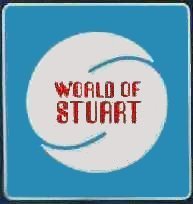|
See if you can
join the dots on this one before The Man On The Street get to the end,
chums. It's a fun game for all the family!
It's a well-documented fact that the consoles which have historically been
the most susceptible to piracy have also been the most successful. From the
Spectrum to the Amiga to the first Playstation, any generation of hardware
which has had one machine whose games were more easily pirateable than its
competitors, has seen that machine far outstrip its rivals in terms of sales
of both hardware and software.
In trying to grab themselves a big slice of an established market which they
weren’t previously a part of, Microsoft faced a couple of major challenges.
In the existing players, they faced a company with a huge corporate
dominance and unrivalled marketing strength, and a second company with
arguably the world's most valuable intellectual properties of any kind, in
the form of brands established over the entire history of videogaming.
It's fairly difficult to imagine that Microsoft would have created a games
console with a hard drive and a PC-based architecture, and imagined that it
would stay invulnerable to the attentions of the pirate community for very
long. The hard drive in particular is something which has very few tangible
benefits from a gaming perspective - other, of course, than restricting the
lucrative sales of memory cards. Hmm.
We have ourselves in a situation where, with a pretty small amount of effort
and an outlay little more than the price of the console itself - and without
going near any dodgy blokes on market stalls - gamers can easily avail
themselves of a limitless supply of Xbox games for around £1.50 each (see
CHEAP AS CHIPS). Coincidentally, after a start in which it trailed third to
the PS2 and Gamecube, and despite a spectacular lack of exclusive killer
apps since launch day, the Xbox is now a clear second outside of Japan
(where it never stood even a ghost of a chance), and strengthening by the
week as Nintendo looks ever more beleaguered, deserted by publishers and
retail chains alike.
Does anyone think this sequence of events is a fluke? Does anyone think it's
come as a shock to anyone at Microsoft? The company can easily afford
hefty short-term losses if the result is the ultimate destruction of one or
both of their competitors. The expensive inclusion of the hard drive in the
machine, for practically no sensible purpose from an economic or gaming
point of view, is hard to explain in any other way. (Especially given its
capacity, which is far, far bigger than it needs to be just to store save
files, music for customisable soundtracks, and the odd bit of downloadable
content for the tiny minority using Xbox Live.)
So has Microsoft deliberately created a piracy-friendly machine for the sake
of the longer term? Have they taken a big financial hit just to knock out
Nintendo (who would now surely be out of their tiny minds to even think
about launching another console after two third-placers in a row – remember
what happened when Sega wouldn’t accept they weren’t a hardware force any
more, chaps), leaving them to concentrate on a head-to-head against Sony
with the Xbox 2? Interesting business strategy, doncha think, my retail
pals? |
|

|
|
CHEAP AS
CHIPS
Copied Xbox games for £1.50? Doubt this ludicrous-sounding statement? Here's
the proof.
Consumers can now rent games, perfectly legitimately, from places like
www.swapgame.com, with a monthly flat-rate fee of £14.99 entitling them
to rent 2 games at any one time. If they sent games back the same day they
arrived, that'd bring 20-25 games a month through their letterbox. (Your
correspondent hasn't used the service himself, being a journalist who gets
his games for free anyway, but is basing that estimate on experience of
Webflix, a very similar outfit renting DVD movies by mail at the same
rates.) That makes each rental cost about 70p.
If the consumer was to then copy the game to their Xbox hard drive, they
could then send the disc straight back and play the game for as long as they
liked. With a large replacement HD, commonly installed at the same time as a
modchip operation (a 120GB drive, currently about £75, can hold dozens and
dozens of games, and would bring the total cost of the chipping operation to
not much over £100, ie slightly more than two games) they'd be sorted right
there. But even with only the standard hard drive, it's easy, with almost no
technical knowledge, to connect the Xbox to the PC with the official link
cable, copy the installed files across, make an ISO and then burn the ISO
with a DVD writer, producing a perfect copy of the original disc, for a
further 75p or so for the blank DVD. Add a few pence for a DVD case and
print out the cover from the net’s many cover sites like
www.cdcovers.cc, and Consumer Jim has something that looks nice on his
game shelf - and which he can then delete from the HD to make room for the
next rental game - for a total outlay of £1.50 or so. (And of course, it
makes for temptingly lucrative business for the professional pirate too, who
can pump these copies out at markets and boot fairs for anything up to
£8-£10 a shot. Nice margin, eh?)
It would have been incredibly easy for Microsoft to get round this (or at
least add a relatively challenging extra layer of protection requiring
coding skills and a separate “crack” for every game) by requiring the disc
to remain in the Xbox drive as a “key disc” - like most PC games do - even
when it's installed on HD. Yet they chose not to. Why might that be, do you
think? |

